
The 2014 Chevy Cruze Diesel Engine is a 2․0L turbocharged powerhouse‚ offering exceptional fuel efficiency and torque․ Its advanced design ensures smooth operation and reliability․
Overview of the 2014 Chevy Cruze Diesel Engine
The 2014 Chevy Cruze Diesel Engine is a 2․0L turbocharged diesel engine designed for optimal performance and fuel efficiency․ It features a robust engine block‚ advanced fuel injection system‚ and a turbocharger with an intercooler for enhanced power delivery․ With a focus on reliability‚ this engine is equipped with a sophisticated cooling system and durable components․ Its compact design ensures compatibility with the Cruze’s chassis‚ providing a balance between power and fuel economy․ Regular maintenance‚ as outlined in the engine diagram‚ is crucial for sustaining its performance and longevity․ This engine is a testament to Chevrolet’s commitment to innovation and efficiency․
Importance of Engine Diagrams for Maintenance and Repair
Engine diagrams are essential for maintaining and repairing the 2014 Chevy Cruze Diesel Engine․ They provide a visual guide to locate components‚ understand connections‚ and troubleshoot issues efficiently․ By referencing these diagrams‚ technicians and DIY enthusiasts can identify potential problems‚ such as faulty sensors or worn-out parts․ Diagrams also help in planning repairs‚ ensuring the correct tools and parts are used․ Regular maintenance‚ like checking fluid levels and inspecting belts‚ is simplified with a clear understanding of the engine’s layout․ This visual aid enhances accuracy and reduces the risk of costly mistakes‚ making it a vital resource for anyone working on the engine․
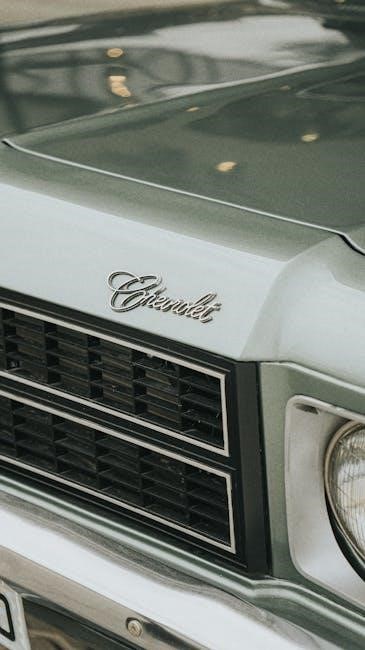
Key Components of the 2014 Chevy Cruze Diesel Engine
The 2014 Chevy Cruze Diesel Engine features a robust engine block‚ a precise fuel injection system‚ a high-efficiency turbocharger‚ and an advanced intercooler for optimal performance․
Engine Block and Cylinders
The 2014 Chevy Cruze Diesel Engine features a durable engine block made of cast iron‚ ensuring strength and heat dissipation; The block houses four cylinders arranged in a line‚ providing a compact and efficient design․ Each cylinder is equipped with a precision-engineered sleeve to maintain proper compression and reduce wear․ The robust construction of the engine block and cylinders allows the diesel engine to handle the high compression ratios required for optimal performance․ Regular maintenance‚ such as checking cylinder head integrity and cooling system efficiency‚ is crucial to prevent issues like overheating or reduced power output over time․
Fuel Injection System
The 2014 Chevy Cruze Diesel Engine features a high-pressure common-rail fuel injection system‚ ensuring precise fuel delivery for optimal performance․ The system utilizes solenoid-type fuel injectors‚ which provide excellent control over fuel flow and atomization․ This design enhances combustion efficiency‚ reducing emissions and improving fuel economy; The fuel injection system is compatible with B20 biodiesel‚ offering flexibility for eco-conscious drivers․ However‚ in colder climates‚ biodiesel blends above B20 can cause gelling issues‚ requiring careful monitoring․ Regular maintenance‚ such as cleaning the injectors and using the correct viscosity oil‚ is essential to maintain system performance and prevent clogging or wear over time․
Turbocharger and Intercooler
The 2014 Chevy Cruze Diesel Engine features a variable geometry turbocharger‚ which enhances performance by forcing compressed air into the engine for increased power and torque․ The intercooler cools this compressed air before it enters the engine‚ improving efficiency and reducing the risk of overheating․ This system significantly boosts low-end torque‚ making the engine responsive and fuel-efficient․ Proper maintenance‚ such as checking for turbocharger oil leaks and ensuring intercooler cleanliness‚ is essential to prevent performance degradation․ The turbocharger and intercooler work seamlessly to deliver a smooth‚ powerful driving experience while maintaining the engine’s durability and efficiency over time․
Exhaust System
The 2014 Chevy Cruze Diesel Engine’s exhaust system is designed to minimize emissions and optimize performance․ It includes components like the exhaust manifold‚ downpipe‚ catalytic converter‚ Diesel Particulate Filter (DPF)‚ and muffler․ The system ensures gases are expelled efficiently while reducing noise and pollutants․ Over time‚ issues like clogged DPFs or leaks can arise‚ requiring attention; Regular inspections and maintenance‚ such as cleaning or replacing the DPF‚ are crucial to prevent engine performance degradation․ Proper exhaust system care helps maintain fuel efficiency‚ reduce emissions‚ and ensure the engine runs smoothly and quietly for years to come․
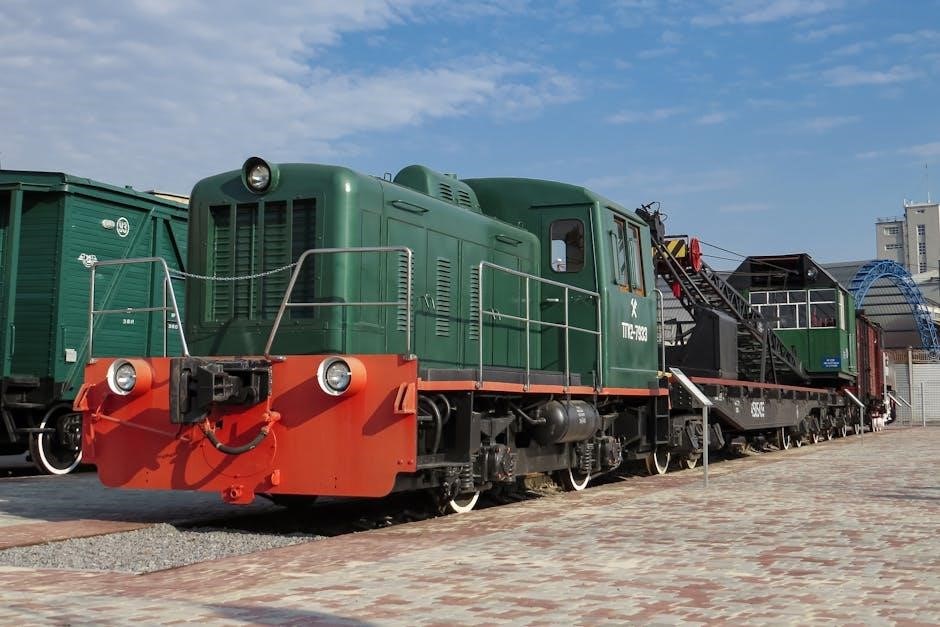
Common Issues with the 2014 Chevy Cruze Diesel Engine
Common issues include hard starting‚ oil viscosity concerns‚ antifreeze maintenance‚ and head gasket problems․ Regular maintenance and inspections are crucial to address these challenges effectively․
Hard Starting and Engine Struggles
Hard starting and engine struggles in the 2014 Chevy Cruze Diesel are often linked to low fuel pressure or faulty glow plugs․ Cold weather exacerbates these issues‚ as diesel fuel can gel․ Symptoms include rough idling or stalling after starting․ Proper biodiesel usage and maintaining the correct oil viscosity are crucial․ Regular maintenance‚ such as checking fuel filters and glow plug performance‚ can prevent these problems․ Consulting a repair manual or engine diagram helps identify and address the root cause effectively‚ ensuring smooth engine operation and reliability․ Addressing these issues promptly prevents further damage and maintains optimal performance․ Regular inspections are essential․
Oil Change and Viscosity Requirements
The 2014 Chevy Cruze Diesel requires synthetic 5w30 oil for optimal performance․ Oil changes are recommended every 15‚000 miles or one year․ Using the correct viscosity ensures proper lubrication and fuel efficiency․ Incorrect oil viscosity can lead to engine damage or decreased performance․ Regular oil changes prevent sludge buildup and maintain engine health․ Always use high-quality‚ diesel-specific oil to meet the engine’s demands․ Refer to the owner’s manual or engine diagram for specific guidelines․ Proper maintenance extends the engine’s lifespan and prevents costly repairs․ Stick to the recommended schedule to keep your Cruze Diesel running smoothly and efficiently․
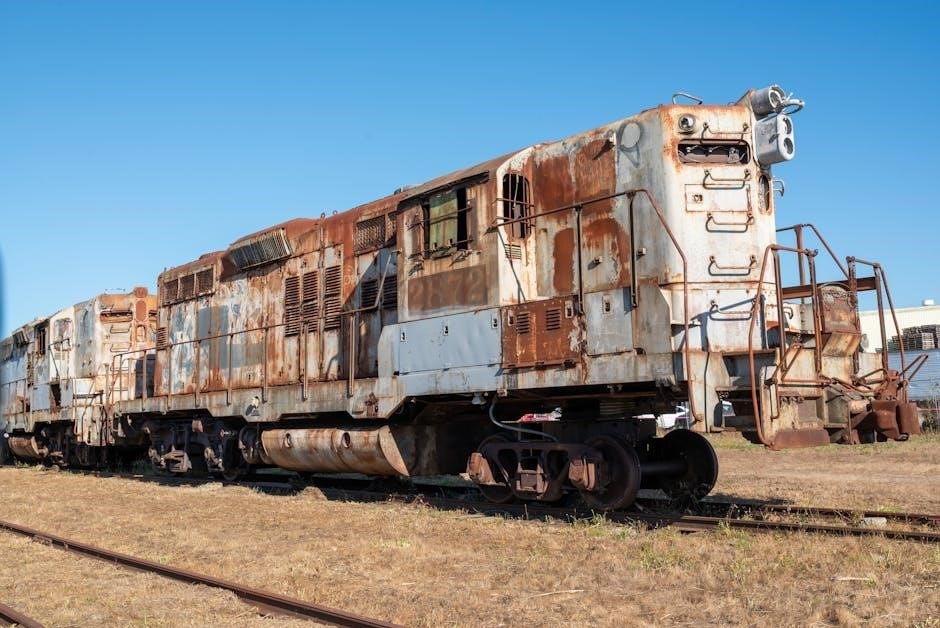
Antifreeze and Coolant Maintenance
Proper antifreeze and coolant maintenance is crucial for the 2014 Chevy Cruze Diesel Engine․ Using a 50/50 mix of antifreeze and water ensures optimal heat transfer and prevents engine damage․ Avoid using 100% antifreeze‚ as it reduces cooling efficiency․ Regularly inspect the coolant level and top it off as needed‚ especially after driving․ Check for leaks in the cooling system to prevent overheating․ Flush and replace coolant every 30‚000 to 50‚000 miles to maintain performance․ Refer to the engine diagram for coolant system locations․ Proper maintenance prevents corrosion and ensures reliable engine operation in all temperature conditions․
Head Gasket and Engine Performance Issues
The 2014 Chevy Cruze Diesel Engine may experience head gasket issues‚ which can lead to reduced performance and inefficiency․ Symptoms like overheating‚ white smoke from the exhaust‚ or coolant mixing with oil may indicate a blown head gasket․ However‚ some cases show no oil discoloration‚ making diagnosis challenging․ Regular inspection of the cooling system and monitoring engine performance can help identify potential problems early․ If a head gasket failure is suspected‚ professional inspection is essential to prevent further damage․ Always refer to the engine diagram in the repair manual for accurate diagnostics and repairs to ensure optimal engine functionality and longevity․

Maintenance Tips for the 2014 Chevy Cruze Diesel Engine
Regular oil changes with 5w30 diesel oil‚ proper coolant checks‚ and fuel system maintenance are crucial for optimal performance and longevity of the engine․
Fuel Type and Biodiesel Compatibility
The 2014 Chevy Cruze Diesel Engine is compatible with B20 biodiesel‚ but higher blends may cause issues in colder climates due to gelling․ Using 100% petroleum diesel is recommended for optimal performance and reliability․ Avoid biodiesel during freezing temperatures to prevent fuel line blockages․ Always refer to the owner’s manual for specific guidelines on fuel compatibility․ Mixing biodiesel improperly can lead to engine damage‚ so ensure proper blending ratios․ Additionally‚ regular fuel system cleaning is essential to maintain efficiency and prevent clogged injectors‚ especially when using biodiesel blends․
Recommended Oil and Filter Changes
The 2014 Chevy Cruze Diesel Engine requires 5w30 synthetic diesel oil for optimal performance․ Oil and filter changes are recommended every 15‚000 miles or one year‚ whichever comes first․ Using high-quality boutique diesel oils can extend intervals up to 15‚000 miles without compromising engine health․ Synthetic oil provides better viscosity range and protection against wear‚ especially in extreme temperatures․ Regular filter changes prevent contamination and maintain fuel efficiency․ Avoiding shorter 2-month oil change intervals unless driven in severe conditions․ Stick to genuine or OEM-approved filters for reliability and ensure proper disposal of used oil and filters․
Cooling System Maintenance
Regular cooling system maintenance is crucial for the 2014 Chevy Cruze Diesel Engine․ Antifreeze and coolant levels must be checked and topped off as needed‚ ensuring a 50/50 mix․ Avoid using pure antifreeze‚ as it reduces heat transfer efficiency․ After driving‚ inspect the coolant for contamination or degradation․ Flush and replace coolant every 30‚000 to 50‚000 miles to prevent corrosion․ Inspect hoses and belts for signs of wear‚ and replace them if damaged․ Proper coolant maintenance prevents overheating and ensures optimal engine performance․ Refer to the owner’s manual or service guide for specific instructions and intervals․
Timing Belt and Water Pump Replacement
Replacing the timing belt and water pump in the 2014 Chevy Cruze Diesel Engine is essential for preventing catastrophic engine damage․ The timing belt typically needs replacement every 60‚000 to 105‚000 miles‚ depending on usage and manufacturer recommendations․ Inspect the belt for cracks or wear and replace it if damaged․ The water pump‚ often driven by the timing belt‚ should be replaced simultaneously to avoid future issues․ Consult the factory service manual for specific instructions and torque specifications․ Watching a video guide can provide additional clarity․ Proper replacement ensures smooth engine operation and prevents costly repairs down the line․

Understanding the Engine Diagram
The engine diagram for the 2014 Chevy Cruze Diesel Engine provides a detailed visual guide‚ helping users identify components and their connections for repairs and maintenance․
Locating the Engine Diagram in the Repair Manual
The engine diagram for the 2014 Chevy Cruze Diesel Engine is typically found in the factory service manual or repair guide․ It is usually located in the engine overview section or appendix․ To locate it‚ refer to the table of contents or index‚ which lists diagrams alphabetically or by component․ For PDF versions‚ use the search function to quickly find “engine diagram” or related terms․ Ensure the manual corresponds to your specific engine model for accuracy․ Consulting the manual is essential for understanding connections and components‚ aiding in DIY repairs and professional servicing․
Interpreting the Diagram for DIY Repairs
Interpreting the engine diagram for the 2014 Chevy Cruze Diesel Engine is crucial for effective DIY repairs․ Start by identifying key components such as the engine block‚ cylinders‚ fuel injection system‚ and turbocharger․ Understand the flow of fuel‚ air‚ and coolant through the system․ Use color-coded lines and labels to trace connections between parts․ Note the location of sensors‚ belts‚ and hoses‚ as these are common areas for issues․ Cross-reference the diagram with repair manuals or online guides to ensure accurate troubleshooting․ Familiarize yourself with symbols and terminology to avoid confusion․ This visual guide simplifies complex repairs‚ making it easier to diagnose and fix problems efficiently․
Using the Diagram for Troubleshooting
Using the diagram for troubleshooting the 2014 Chevy Cruze Diesel Engine begins with identifying symptoms like hard starting or overheating; Locate relevant components on the diagram‚ such as the fuel injection system or cooling system․ Check for blockages‚ leaks‚ or faulty sensors․ Cross-reference with repair manuals for specific repair steps․ Be aware of common issues like head gasket problems or turbocharger failures․ Use appropriate tools safely‚ considering high-pressure systems and hot components․ Seek additional resources like online forums for insights from other owners․ This systematic approach helps diagnose and address issues effectively․
Diagnostic Tools and Techniques
Essential tools include OBD-II scanners for error codes‚ multimeters for voltage checks‚ and pressure testers․ Visual inspections of belts and hoses ensure reliability and prevent failures․
Using a Scanner for Error Codes
A scanner is essential for diagnosing issues in the 2014 Chevy Cruze Diesel Engine․ Connect it to the OBD-II port to retrieve error codes‚ which pinpoint specific problems like faulty sensors or ignition issues․ Modern scanners display real-time data‚ such as engine temperature and fuel injection performance․ This tool helps identify issues before they escalate‚ ensuring timely repairs․ Regular scanning prevents major breakdowns and maintains optimal engine performance․ Always refer to the engine diagram in the repair manual to locate components indicated by error codes‚ making troubleshooting more efficient and precise․
Checking Fluid Levels and Condition
Regularly checking fluid levels and condition is crucial for maintaining the 2014 Chevy Cruze Diesel Engine․ Start with engine oil‚ ensuring it meets the recommended 5w30 viscosity․ Inspect coolant levels‚ avoiding overfilling‚ and check for contamination․ Transmission fluid should be at the correct level‚ and diesel exhaust fluid (DEF) must be replenished as needed․ Look for signs of degradation or leaks in hoses and reservoirs․ Proper fluid maintenance prevents overheating‚ corrosion‚ and premature wear․ Always refer to the engine diagram for component locations‚ ensuring accurate checks and avoiding costly repairs from neglected fluid maintenance․
Inspecting Belts and Hoses
Regular inspection of belts and hoses is essential for preventing engine damage and ensuring reliable operation․ Start with the serpentine belt‚ checking for cracks‚ fraying‚ or uneven wear․ Replace it immediately if damage is found‚ as failure can leave you stranded․ Hoses should be inspected for leaks‚ brittleness‚ or signs of aging‚ especially near connections․ Use the engine diagram to locate all critical hoses‚ such as coolant and fuel lines․ Addressing issues early prevents costly repairs and maintains optimal engine performance․ Always follow the recommended maintenance schedule for belt and hose replacements to avoid unexpected breakdowns;
Repair and Replacement Considerations
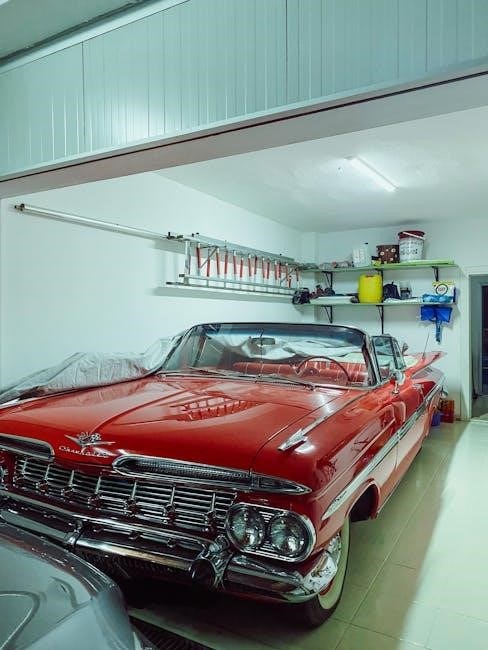
Understanding when to repair or replace the engine is crucial for cost-effective maintenance․ Always use proper genuine parts for reliability and longevity․
When to Repair vs․ Replace the Engine
Determining whether to repair or replace the 2014 Chevy Cruze Diesel engine depends on the severity of damage․ Minor issues like faulty injectors or sensors can often be repaired․ However‚ if major components such as the engine block or head gasket are severely damaged‚ replacement may be more cost-effective․ High mileage engines with extensive wear may also warrant replacement․ Always consult a professional mechanic or refer to the factory service manual for precise diagnostics․ Proper assessment ensures optimal decision-making for long-term reliability and performance of the vehicle․
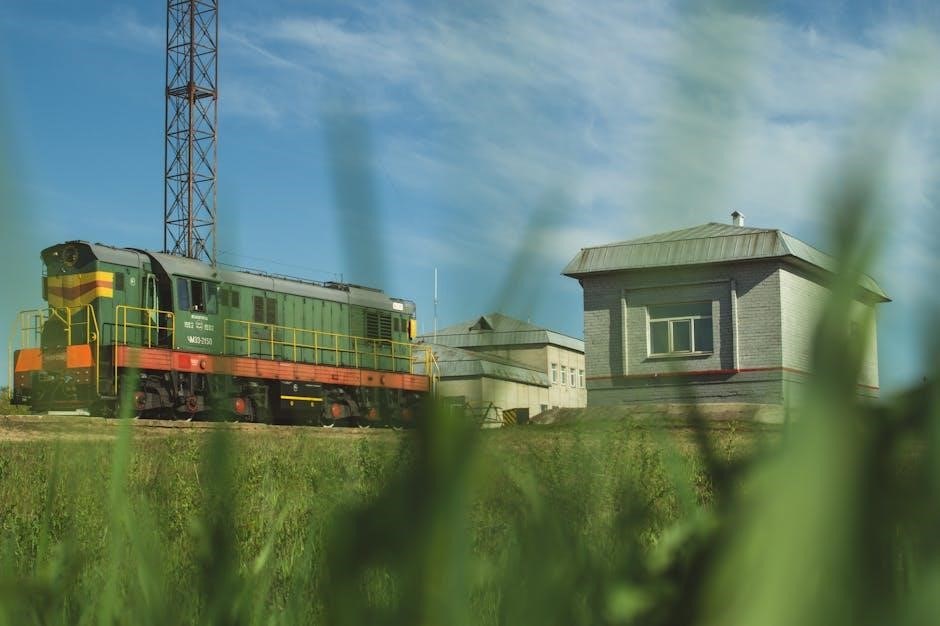
Cost Estimates for Common Repairs
For the 2014 Chevy Cruze Diesel‚ common repairs like fuel injector replacements can range from $500 to $1‚500‚ while turbocharger repairs may cost between $1‚500 and $3‚000․ Head gasket issues can be more expensive‚ often requiring $2‚000 to $4‚000 for parts and labor․ Timing belt replacements typically cost $500 to $1‚500․ Labor costs vary depending on the repair complexity and location․ Using genuine parts ensures reliability and longevity․ Always consult a professional mechanic for accurate estimates tailored to your vehicle’s condition․ Regular maintenance can help prevent costly repairs and extend the engine’s lifespan․
Finding Genuine Parts and Manuals
Finding genuine parts and manuals for the 2014 Chevy Cruze Diesel is essential for maintaining performance and reliability․ Chevrolet dealerships and GM’s official website offer authentic components‚ ensuring compatibility and quality․ For manuals‚ GM’s Parts Direct and ACDelco provide detailed resources‚ including engine diagrams․ Websites like Youcanic also offer PDF guides‚ such as the 2014 Chevy Cruze Diesel engine diagram‚ which includes repair instructions and specifications․ Always verify the source and part numbers to avoid counterfeit items․ Consulting a professional mechanic for assistance is also recommended to ensure proper installation and maintenance․
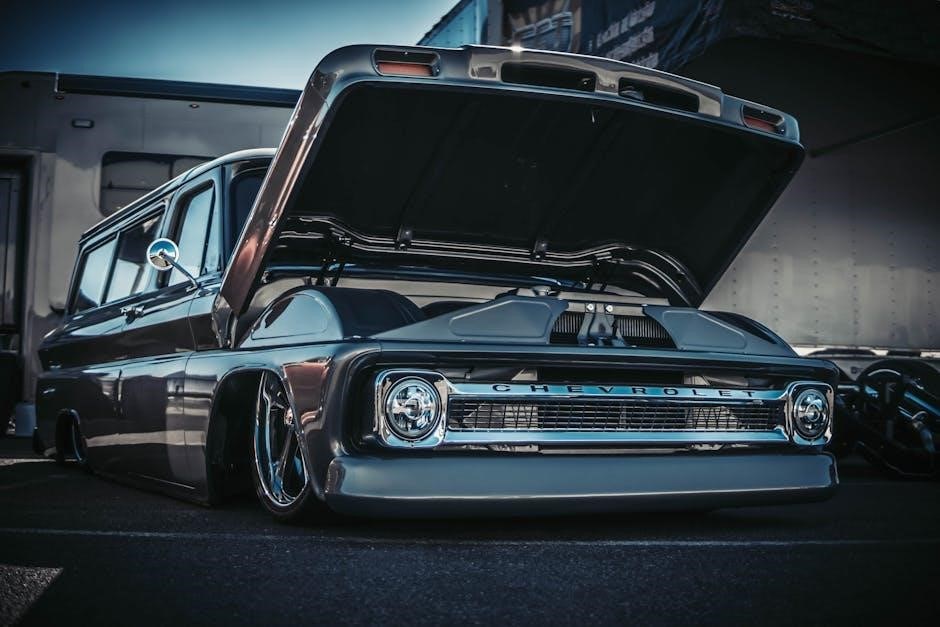
Resources for Further Assistance
Factory service manuals‚ online forums‚ and professional mechanics offer valuable support for troubleshooting and repairs‚ ensuring accurate guidance for maintaining your 2014 Chevy Cruze Diesel engine effectively․
Factory Service Manuals and PDF Guides
Factory service manuals and PDF guides provide detailed instructions and diagrams for diagnosing and repairing the 2014 Chevy Cruze Diesel engine․ These resources include wiring diagrams‚ torque specifications‚ and step-by-step procedures․ Official Chevrolet websites or authorized dealers offer access to genuine manuals‚ ensuring accuracy and reliability․ Additionally‚ forums and specialized repair websites often share PDF versions of these manuals‚ which can be downloaded for convenience․ Using these guides helps ensure proper maintenance and repairs‚ reducing the risk of further damage․ They are indispensable for both DIY enthusiasts and professional mechanics working on the Cruze Diesel engine․
Online Forums and Communities

Online forums and communities are invaluable resources for 2014 Chevy Cruze Diesel owners seeking advice‚ troubleshooting tips‚ or engine diagrams․ Platforms like Reddit‚ Facebook groups‚ and specialized automotive forums host discussions where owners share experiences and solutions․ Many users post detailed DIY guides‚ repair tips‚ and links to PDF diagrams or manuals․ These communities often include veteran mechanics and enthusiasts who provide insights into common issues like hard starting or coolant maintenance․ They also offer support for finding genuine parts or interpreting error codes․ Engaging with these forums fosters a sense of camaraderie and shared knowledge‚ making them a go-to for both novices and experts․
- Share knowledge and solutions with other owners․
- Access DIY guides and engine diagrams․
- Get advice from experienced mechanics and enthusiasts․
Professional Mechanic Recommendations
Consulting a certified Chevrolet mechanic is crucial for diagnosing and repairing complex issues with the 2014 Chevy Cruze Diesel Engine․ They utilize factory service manuals and genuine parts to ensure reliability․ Mechanics often recommend using specialized tools like the YOUCANIC Pro Scanner for accurate diagnostics․ Regular maintenance‚ such as oil changes and coolant checks‚ is emphasized to prevent major repairs․ For intricate problems like head gasket issues or turbocharger malfunctions‚ professionals advise against DIY attempts․ Their expertise ensures adherence to manufacturer guidelines‚ preserving the engine’s longevity and performance․
- Use factory-approved tools and genuine parts․
- Schedule regular maintenance to prevent issues․
- Consult professionals for complex repairs․